Our 5-year workforce equality, diversity and inclusion roadmap

Overview
Building a workforce of talented, committed individuals, with the right skills, knowledge and behaviours, is key to our success as we strive to deliver our 5-year transformation plan.
To achieve this goal, we need to purposefully ‘embrace difference’ by taking a longer-term approach to our workforce equality, diversity and inclusion roadmap (EDI) activity. This roadmap sets out our ambitions and key actions for the period 2024 to 2029.
It sets out:
- our 5 overarching objectives
- the core areas of work we will undertake
- a framework for how we will work together and hold ourselves collectively to account for achieving our goals.
The roadmap applies to all our workforce, including committee members.
It is a dynamic document that will be regularly reviewed, and where necessary updated.
The roadmap has been created with colleagues from across NICE, including our staff networks.
Our 5-year roadmap:
Our 'why'
To be successful, we need to embed our values and behaviours in everything we do.

We focus on users first

We unite as one team with one purpose

We trust each other to make decisions

We act bodly

We embrace difference
‘We embrace difference’: achieving our ambitions through workforce EDI
To meet our key users' needs, we need a committed and dynamic workforce to create innovative solutions for complex health and care challenges.
This means working with the system to address health inequalities through the products and services delivery as well as the actions we take as anchor organisations to improve the wellbeing of our local communities.
By championing diversity and inclusion, we drive innovation, boost productivity, and attract top talent.
To do this, we need to actively ‘embrace difference’ by:

Recruiting and retaining a workforce which is representative of the UK population.
Creating an inclusive and fair workplace where everyone can contribute to their full potential and thrive.
Ensuring our workforce can confidently play its part in promoting equality and addressing health inequalities through our products and services.
Adopting an active ‘anchor organisation’ approach widening access to work, so we can contribute to our local communities and increase opportunities to attract diverse talent.
Through our 5-year transformation plan, we will evolve in 4 ways to meet the needs of practitioners and commissioners.

Focus on what matters most
Is our advice relevant given pressures in health and care?

Provide useful and useable advice
Is our advice timely and easy to use for NHS and care staff?

Learn from data and implementation
Does our advice reflect learnings from real world implementation and data?

Build an organisation as brilliant as the people in it
Do we have simple processes and enabling technology and behaviours?
Improved decision- making
User-focused products and services
Improved partnerships and public engagement
A talented and engaged workforce
Greater diversity and more inclusive ways of working will help us make more robust decisions about what we prioritise by ensuring we take account of a variety of perspectives and viewpoints.
If our workforce reflects the diversity of the broader UK population, we will be better able to develop products and services which address the needs of patients and service users.
Building our confidence in promoting equality and addressing health inequalities in our work will further improve our user-focus.
Improving diversity and working in a consistently inclusive way will help us establish stronger relationships across the system - this will improve engagement with our products and services and help to bring even more diverse perspectives into our work.
When employees feel included and valued, engagement, wellbeing, and productivity increase
Organisations that prioritise diversity and inclusion, and take a proactive stance on social issues, are more likely to attract a wide, diverse pool of candidates and retain talent.
Where are we now?
In the past 2 years, we have taken important steps forward and we can be proud of these, and other, achievements:
The percentage of ethnic minority colleagues at band 8 and above has increased to 14.5% from 11% in 2020/21.
Our executive team is more diverse.
We have established 4 thriving staff networks, with chairs who have agreed protected time.
In our most recent staff survey, 68% of colleagues felt confident in the executive team’s commitment to EDI.
For committees, the application to appointment ratio for ethnic minority and white candidates is about the same .
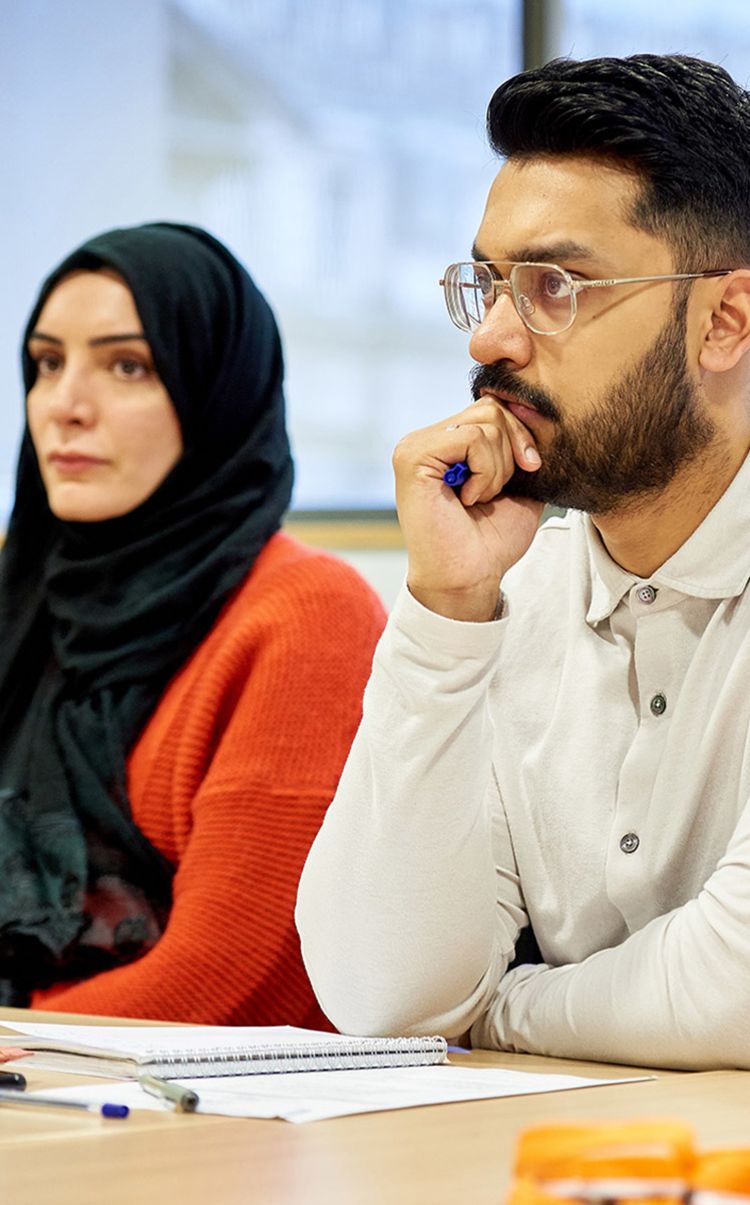




Our staff networks
Our staff networks have played an important role in our success.
Race Equality Network
- Has ensured that the interests of ethnic minority colleagues are heard and are represented in policies and processes
- Provides a safe environment where colleagues can raise concerns
- Organises events to celebrate the diverse cultures of colleagues across NICE
- Works with senior management to address employment inequalities, achieving tangible improvements in our interview to appointment conversion rates

Women in NICE
- Has spear-headed awareness-raising, taboo-busting menopause events and campaigns
- Hosts monthly menopause support coffee breaks
- Provided input into the updated parent policy
- Has undertaken inquiry work to learn more about the experiences of colleagues experiencing miscarriage or undergoing fertility treatment
NICE and Proud
- Has scoped the organisation’s learning needs with regard to LGBTQ+ issues and hosted events to support this
- Has worked with the editorial team to review and update the NICE style guide
Disability Advocacy and Wellbeing Network
- Has introduced disability passports and the ‘quiet and calm’ office area
- Collaborated with people and places on an improved reasonable adjustments process
- Raises awareness (Disability Pride and Disability History Month)
- Provides support to colleagues
However, we are still on a journey
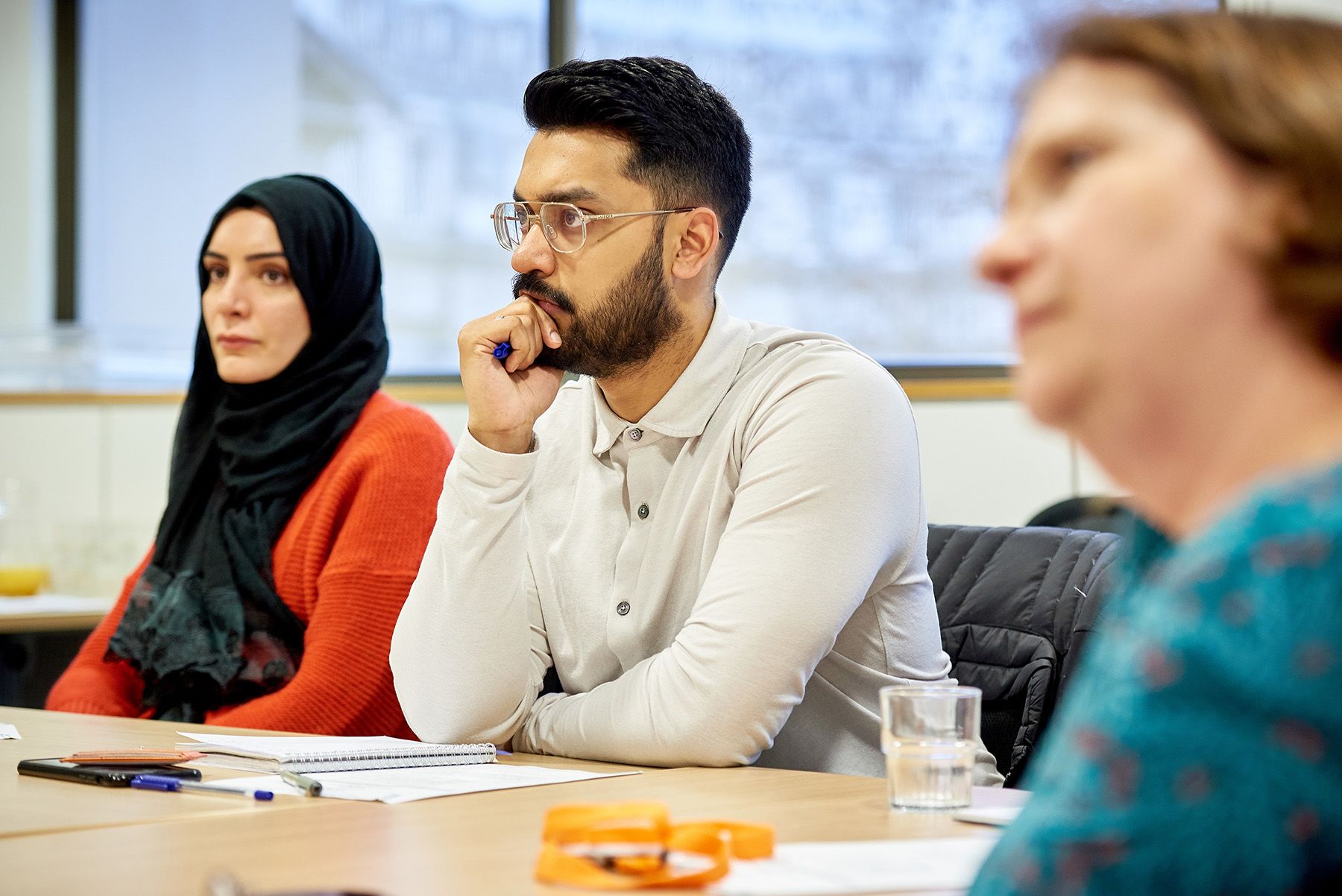
Our current workforce is still some way off fully representing the broader community, especially at higher bands
While the percentage of ethnic minority colleagues at Band 8+ has improved to 14.5%, the % across the UK is 18%.
We recognise a lack of diversity within specific staff groups, for example our internal clinical expert groups (pharmacists and doctors).
We also recognise a need to broaden the conversation about diversity beyond the protected characteristics; we have yet to take stock, for example, of the socio-economic profile of our workforce.
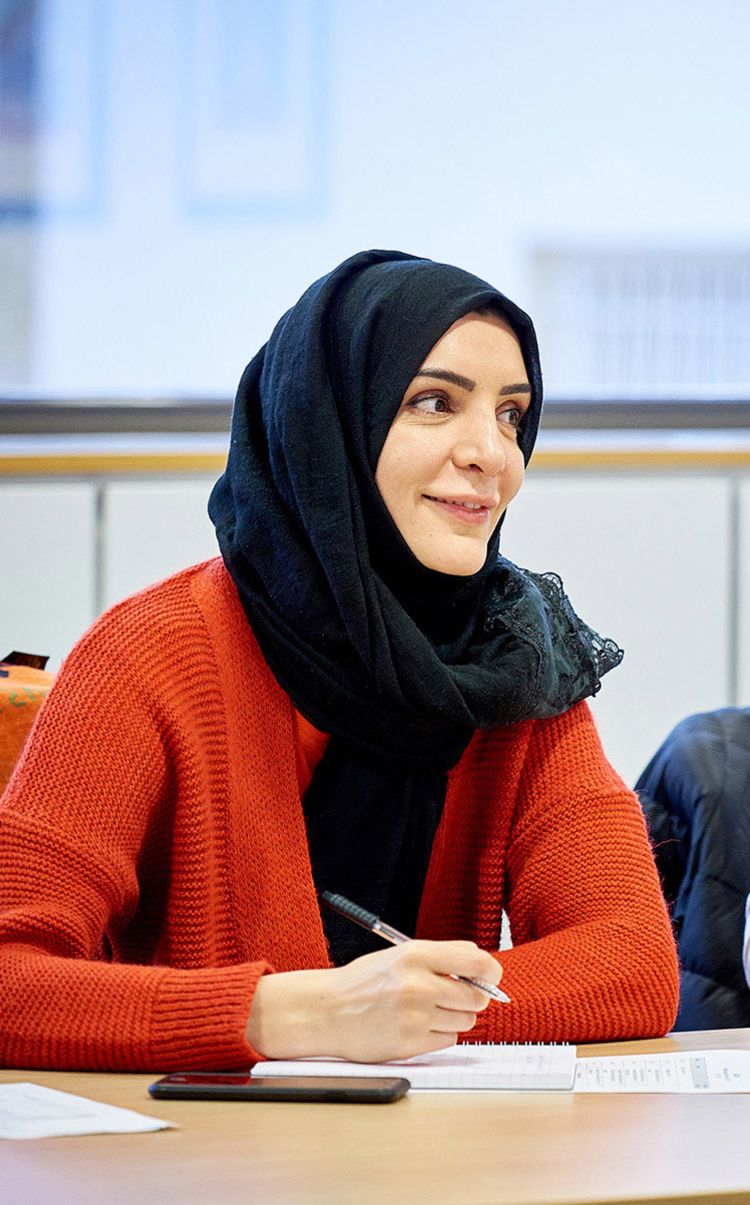
We are not always good at working in diverse teams or with external stakeholders - and we need to get better at tackling inappropriate behaviours
Reports of having experienced bullying and harassment are higher for ethnic minority colleagues (15%) than for the overall workforce population(10%).
They are notably higher for disabled colleagues (27%), whose reported staff experience is significantly worse than for other groups across measures; we know we need to do more to understand the needs of neurodiverse colleagues.
There are also, at times, concerns about the behaviours at our committees.

We need more consistent inclusive behaviour and role modelling from our senior leaders
68% of staff feel that the executive team demonstrate their commitment to EDI, but there are still 32% who do not; staff consistently say they want our senior leaders to be more visible in their support of EDI.
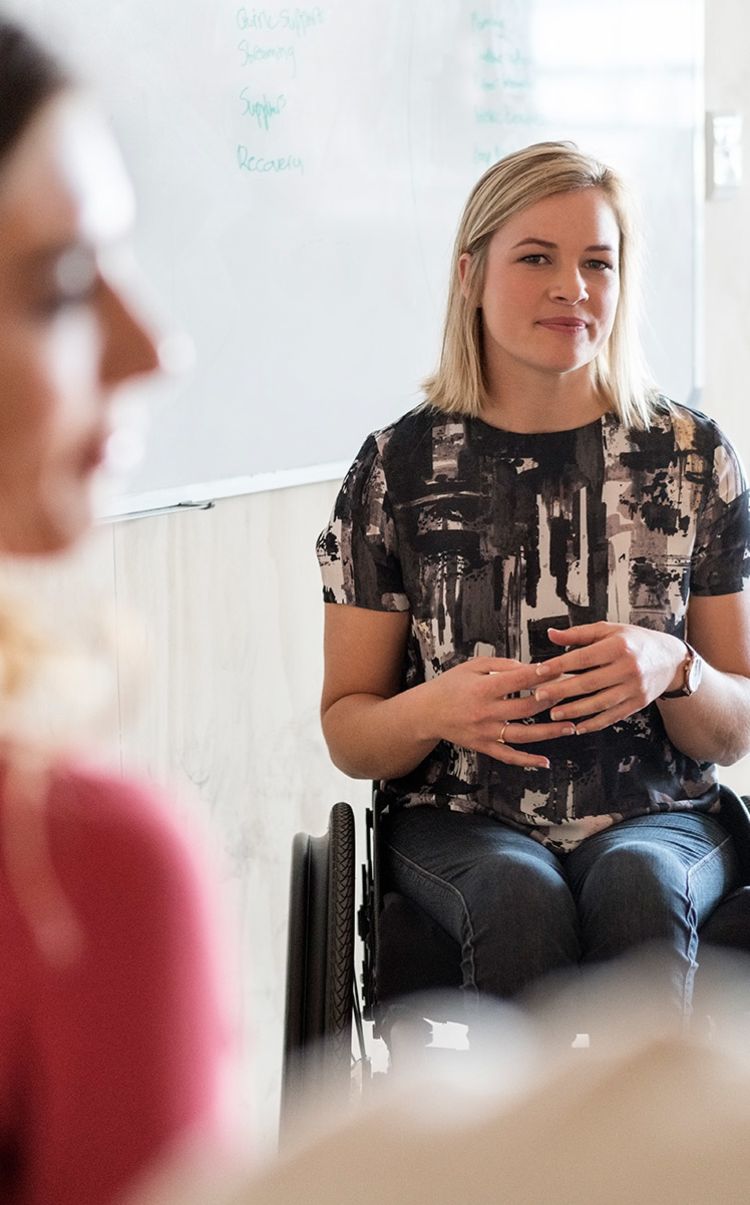
We know that we can improve our collective ability to promote equality and address health inequalities through our products and services
To do this, we need to establish a shared understanding of NICE’s role in these areas, and ensure we have the right ‘people’ capabilities (skills, knowledge, behaviours), and work culture, to fulfil our remit consistently and sustainably.

We have yet to explore what we can offer as an active anchor organisation, working with partners to widen access to work and opportunities
This means we are potentially missing opportunities to contribute to the health and wealth of our local communities, to tap into the diverse talent pools sitting on our doorsteps, and build our reputation as a progressive, socially engaged ‘employer of choice’.
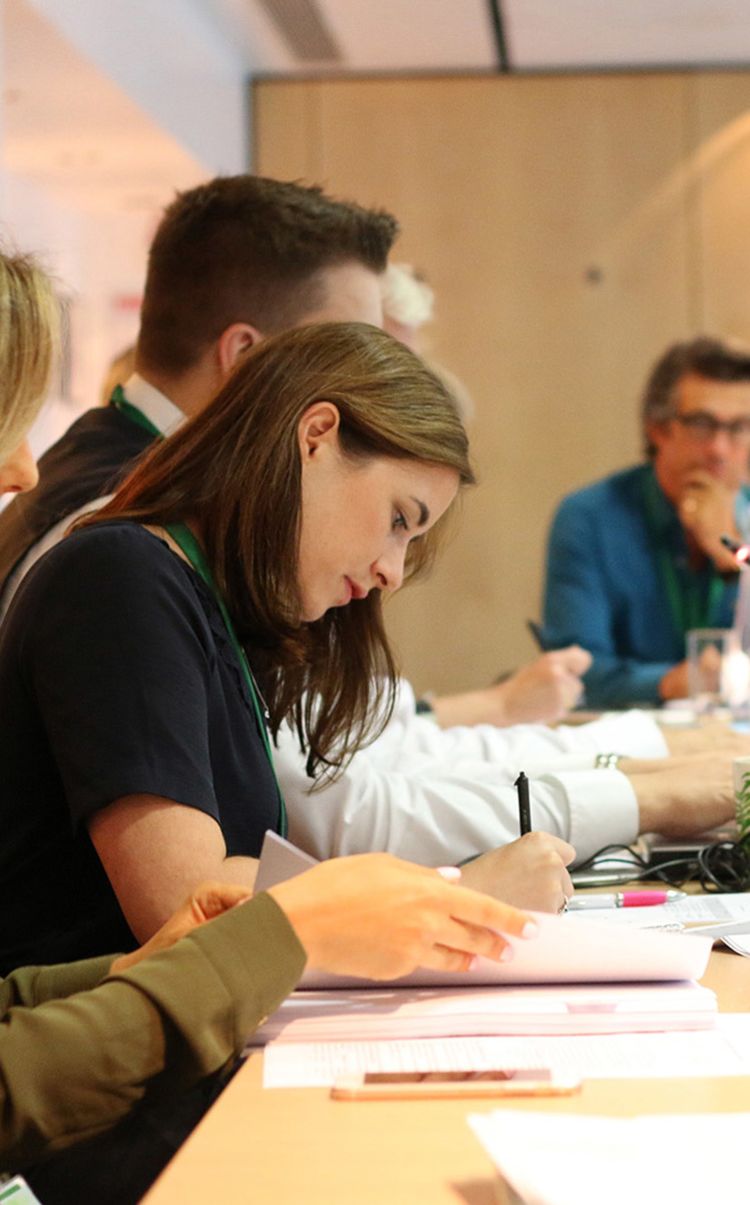
Our 5-year roadmap:
Objectives, key performance indicators and key activity for 2024-2029
Key priority areas for 2024/25
Improve the diversity of our workforce
- Continue work to embed and develop recruitment improvements introduced in 2023, including the Inclusive Recruitment Volunteer Scheme (diverse panels)
- People and Place directorate to take responsibility for committee recruitment
Create a consciously inclusive work culture
- Launch an improved governance and operational model to support delivery of the 5-year roadmap (including directorate level action plans and a refresh of the NICE equality and diversity group)
- Implement recommendations to address bullying, harassment and discrimination, including implementation of a restorative just culture approach
- Take steps to better understand the experiences of colleagues working with disabilities/ neurodiversity, using insights to develop plans and implement actions (to include scoping of disability policy)
- Policy work: launch of a trans/ non-binary and a menopause policy
Build a community of inclusive leaders
- Define and agree expected competences, skills and behaviours of an inclusive leader at NICE
- Scope and deliver EDI development for our senior leaders (executive team, programme directors and associate directors) to include reciprocal mentoring
- Incorporate content and activity supporting the development of inclusive leadership capabilities into our leadership and management development offer, with a focus on senior leaders
We identify 5 objectives for 2024-2029
Diversity
We will improve the diversity of our workforce, so it is at least as diverse as the broader UK population.
Inclusion
We will create a consciously inclusive workplace where everyone enjoys a high-quality workplace experience and there is equality of opportunity.
Inclusive leadership
We will build a community of inclusive leaders, who understand the issues, are confident leading for positive change, and take accountability for delivery.
Confident in our work
Our workforce is confident in promoting equality and addressing health inequalities through our products and services.
An active anchor organisation (employer)
We will establish ourselves as an active anchor organisation, widening access to good quality employment and work opportunities
Appendices
Taking an anchor organisation approach
roadmap timelines (provisional)
Taking an anchor organisation approach to workforce - an overview
What is an anchor approach?
Every NHS organisation has a role to play in its local communities- taking an ‘anchor’ approach means taking proactive steps to create social value locally though employment practice, procurement, sustainability and estate.
The NHS Long Term Plan (2019) made a commitment to developing the role of the NHS as an anchor institution; last year, the NHS Long Term Workforce Plan set out how NHS employers can work individually and collectively to benefit local communities and reduce inequalities through employment practice. This can include:
- recruiting more people from local communities with a focus on those who may experience health inequalities
- facilitating skills development, career progression and social mobility
- supporting the health and wellbeing of staff.
What are the benefits to NICE of operating in this way?
- We will be doing more to help address health inequalities in our local communities and the wider system - good quality employment is recognised as a key social determinant of health.
- Widening access to work and development opportunities will increase our ability to tap into diverse talent pools in our North West and east London geographies, supporting our aspiration to create a workforce as diverse as the UK population.
- Taking a proactive approach to improving the health and wealth of our communities, with a focus on groups who experience inequalities, will also help to build our reputation as a ‘employer of choice’ and attract talent - in a competitive marketplace, candidates increasingly favour organisations who take a progressive stance on social issues.
Timeline of key activity
|
2024 |
H2 |
2025 |
H2 |
2026 |
H2 |
2027 |
H2 |
2028 |
H2 |
|
|---|---|---|---|---|---|---|---|---|---|---|
|
Improving the diversity of our work force |
||||||||||
|
Embed/ develop existing work to improve inclusivity of recruitment process and practice (for example diverse panel scheme, committee recruitment) |
x |
x |
||||||||
|
Scope and take action to improve recruitment process and practice for disabled and neurodiverse colleagues |
x |
x |
||||||||
|
Scope and broker opportunities for widening our access to diverse talent pools - to include professional networks/organisations (2025/6), local communities (2026 +) |
x |
x |
x |
x |
x |
x |
x |
x |
||
|
Build a consideration of EDI into our talent management/ succession planning approach, with a focus on colleagues from under-represented groups |
x |
x |
x |
x |
||||||
|
Develop and deliver targeted development offers for colleagues from under-represented groups |
x |
x |
x |
x |
x |
x |
x |
|||
|
Creating a consciously inclusive workplace |
||||||||||
|
Launch and embed refreshed approach to EDI governance and monitoring |
x |
x |
||||||||
|
Progress work to embed our value of ‘We embrace difference’ |
x |
x |
x |
x |
||||||
|
Improve the provision and delivery of reasonable adjustments |
x |
x |
x |
|||||||
|
Implement, embed and monitor recommendations/ interventions to address bullying, harassment and discrimination |
x |
x |
x |
x |
x |
x |
x |
x |
x |
x |
|
Further develop and deliver existing EDI learning and development offer, to align with core leadership and management/ skills development offer |
x |
x |
x |
|||||||
|
Build a community of Inclusive Leaders |
||||||||||
|
All senior leaders (board, executive team, programme directors and associate directors) to have measurable EDI objectives |
x |
x |
x |
x |
||||||
|
Scope and agree what we mean by ‘Inclusive Leadership’ at NICE - to include competences, skills, behaviours |
x |
x |
||||||||
|
Scope inclusive leadership development needs across NICE; develop and deliver development activity -first phase (2024/5) to include bespoke executive team EDI development and development for programme directors and associate directors via leadership development offer |
x |
x |
x |
|||||||
|
Build a consideration of inclusive leadership capabilities into our recruitment process and practice, and talent management/ succession planning approach |
x |
x |
x |
x |
||||||
|
Confident in our work |
||||||||||
|
Scope and agree NICE’s remit and approach to promoting equality and addressing health inequalities in our work |
x |
x |
x |
|||||||
|
Scope what workforce capabilities we will need (2025/26) and scope/design/ deliver development (2026/27) |
x |
x |
x |
x |
||||||
|
Scope and take action to develop recruitment/talent management practice to ensure we are recruiting and retaining candidates with required capabilities |
x |
x |
||||||||
|
Establishing NICE as an anchor organisation |
||||||||||
|
Scope and agree what being an anchor organisation (employer) could look like for NICE - what can we do; what can’t we do?- develop an anchor framework |
x |
x |
||||||||
|
Scope approach/ plans for engaging with local and system stakeholders with regard to widening access to employment and work opportunities |
x |
x |
||||||||
|
Implement our approach to establishing NICE as an anchor |
x |
x |
x |
x |
x |
x |
x |